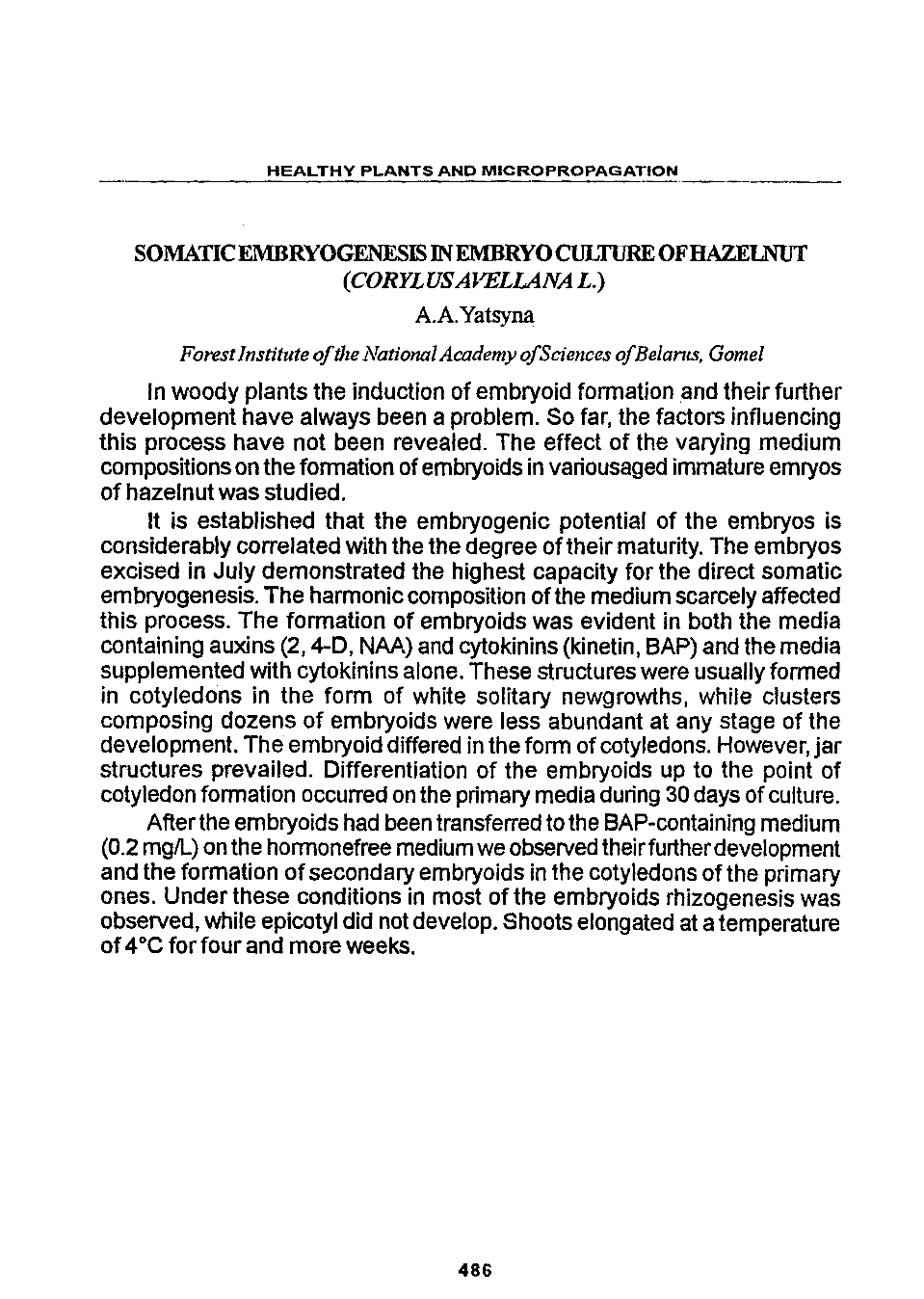

H E A L T H Y P L A N T S A N D M IC R O P R O P A G A T IO N
SOMATICEMBRYOGENESISINEMBRYOCULTUREOFHAZELNUT
(
C
ORYLUSA VELLANA L.)
A.A.Yatsyna
ForestInstitute o fthe NationalAcademy o fSciences o fBelarus, Gomel
In woody plants the induction o f embryoid formation and the ir further
deve lopment have always been a problem. So far, the factors influencing
this process have not been revealed. The effect o f the varying medium
compositions on the formation of embryoids in variousaged immature emryos
o f hazelnut was studied.
It is established that the embryogenic potential o f the embryos is
considerably correlated with the the degree o f their maturity. The embryos
excised in July demonstrated the highest capacity fo r the direct somatic
embryogenesis. The harmonic composition o f the medium scarcely affected
this process. The formation o f embryoids was evident in both the media
containing auxins (2 ,4-D, NAA) and cytokinins (kinetin, BAP) and the media
supplemented w ith cytokinins alone. These structures were usually formed
in cotyledons in the form o f white solitary newgrowths, while clusters
composing dozens o f embryoids were less abundant at any stage o f the
development. The embryoid differed in the form of cotyledons. However, ja r
structures prevailed. Differentiation o f the embryoids up to the point o f
cotyledon formation occurred on the primary media during 30 days of culture.
A fter the embryoids had been transferred to the BAP-containing medium
(0.2 mg/L) on the hormonefree medium we observed theirfurther development
and the formation o f secondary embryoids in the cotyledons o f the primary
ones. Under these conditions in most o f the embryoids rhizogenesis was
observed, while epicotyl did not develop. Shoots elongated at a temperature
o f 4°C fo r four and more weeks.
4 8 6
Научная электронная библиотека ЦНСХБ









